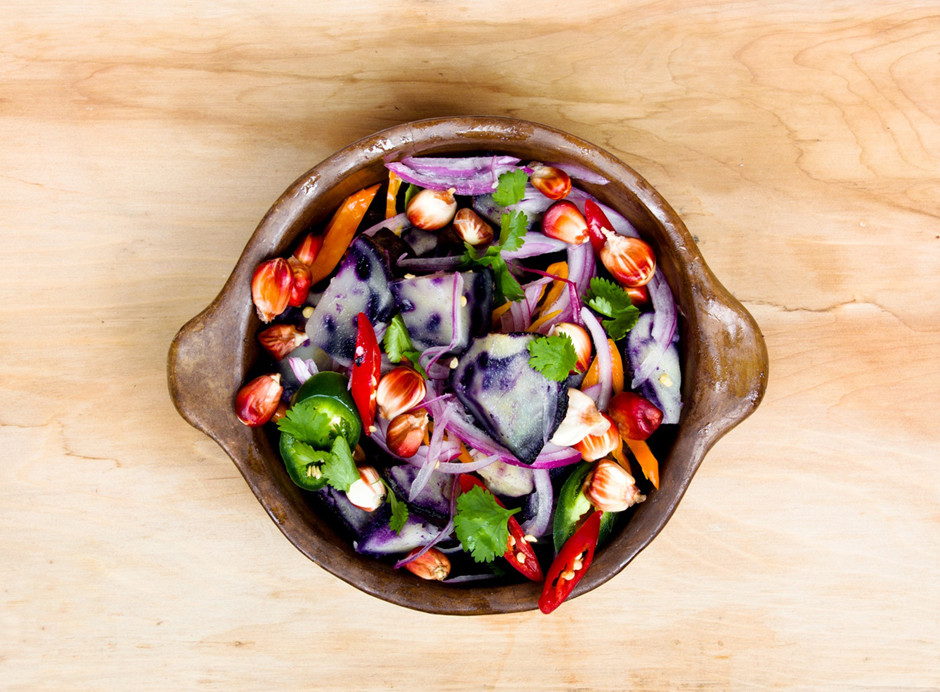While in Austin over the weekend, I grabbed lunch at a little salad place called Leaf. They make the salads right in front of you, and you can customize them any way you want.
I asked the guy who was making my salad to please point out anything I should avoid because of gluten. He asked me if I had an allergy.
Here’s where I would normally say yes.
Over the past few years, I have found that when I go to a restaurant, the word ALLERGY triggers the correct response that keeps my food safe from gluten contamination. Within the celiac community, this can cause some serious controversy.
Celiac disease is NOT an allergy to gluten, it is an autoimmune disease. I get that. But I also want to be as safe as possible when eating out, and many times the term “celiac disease” is met with a blank stare. Most restaurants have an “allergy” button on their computer and “allergy” protocols in their kitchens. Allergy is a word people understand, so I use it.
But on this particular day in Austin, I didn’t. When he asked if I had an allergy, I told him no. I have celiac disease.
And his response changed my whole way of thinking.
He had never heard of celiac disease before, but he wanted to know more. He asked good questions, and even said that he planned to look into it more when he got home. This man cared enough to learn about celiac disease so he could serve customers better in the future.
This was a lightbulb moment for me.
Because I have been using the word “allergy” I have missed out on opportunities to educate and advocate for the celiac community.
This doesn’t mean I’m going to go into a whole spiel every time I visit a restaurant from now on, but I will use the words “celiac disease” when ordering gluten-free.
Hopefully it will spark some questions and a little more understanding from the servers even as they continue to punch the “allergy” button on their computers.


I debate with myself about this as well. I usually say something along the lines of:
“I have celiac disease and that means if gluten gets in my food I will be sick for weeks. Please take good care of me.”
I’ve found that framing it as a request for care and consideration has helped some servers shift from seemingly annoyed at my questions to softening and shifting into a caretaking space for my meal.
I think it is a good distinction. I have used the term “allergy” while eating out with my kids, though they don’t have an allergy or celiac disease, they have a metabolic disorder. I don’t want people to go to all the hassles of cleaning issues, but I also hate picking off spare croutons or bits of cheese when I ask for it not to be included on their salad. There are many food related issues that people can have and I think education in general helps all of us. 🙂
This reminds me a lot of a meeting I had not long ago with an RD representing a big cereal company that was coming out with a new protein-packed cereal. The entire presentation was about how protein is this hot new nutrient of concern that everyone wants more of. Interjected in the middle of this presentation was this almost after-thought admission from the dietitian that, as RDs, of course we know that, if anything, the typical American diet is probably higher in protein than is recommended for optimum health….but we should still push these protein-packed products, because they’re healthy, because…consumers think so.
And I just thought to myself, aren’t we missing the point? Shouldn’t we be devoting our effort to educating the public that more protein is not the key to their health goals, rather than developing a “healthy” product that placates their uninformed opinions? We’re missing a huge opportunity.
I know that story is not related to celiac disease, and it’s not exactly the same issue in general, but I can’t help but think of all of the instances where we choose ease and simplicity over information and education, especially when it comes to health.
Thank you for sharing this. I agree that we, those in our community, have to always say Celiac Disease, and we can have NO cross contamination. I say to the server, we can have no cross contamination, please make sure the chef knows. It is easier for me since my daughter has diagnosed CD, while I was negative, I can’t eat wheat either and act as a Celiac. I can advocate for her without feeling high maintenance. When asked if it is an allergy, I say no but it is a lot like one that requires no cross contamination as well. That way I get their attention but educate as well. I like Kate’s comment, please take good care of me! Nice!